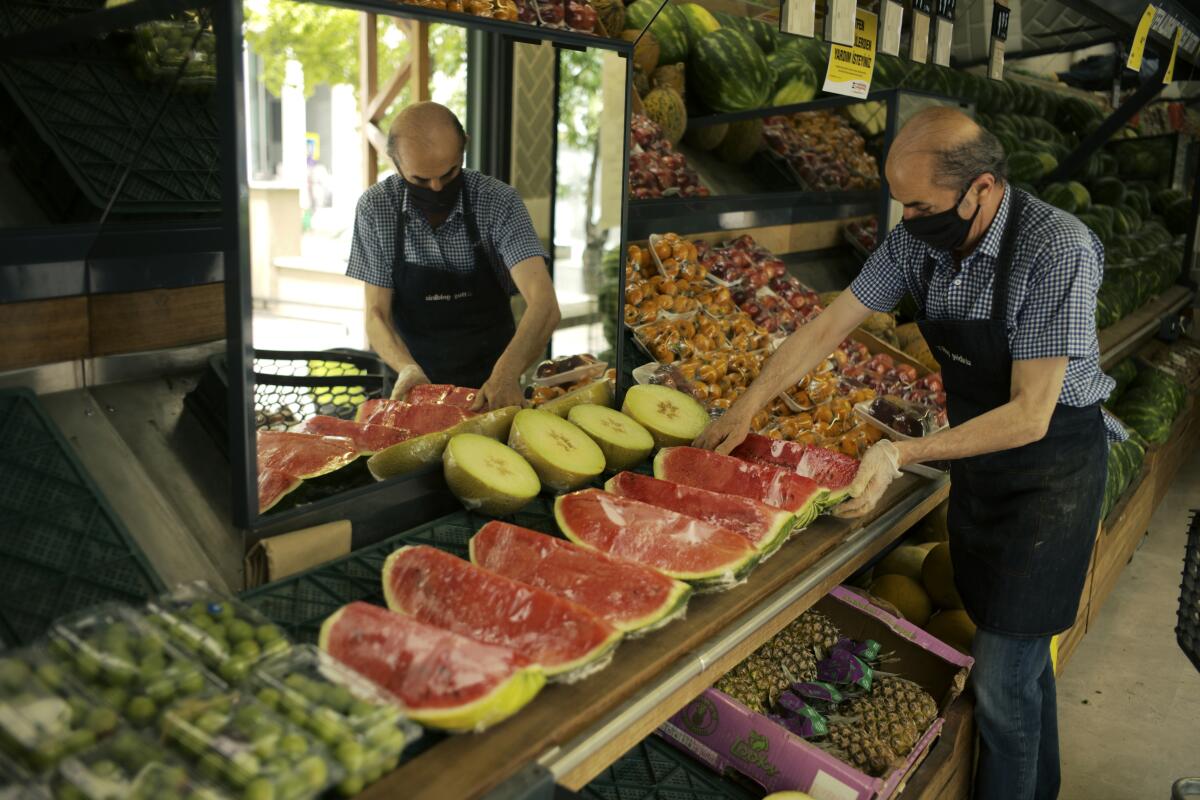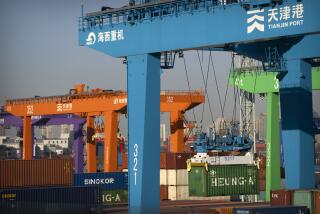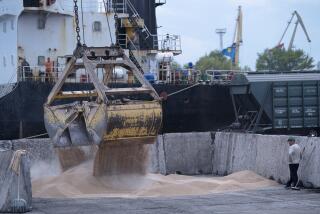World Bank dims outlook on global economy amid ‘stagflation’ fears

WASHINGTON — The World Bank has sharply downgraded its outlook for the global economy, pointing to Russia’s war against Ukraine, the prospect of widespread food shortages and concerns about the potential return of “stagflation” — a toxic mix of high inflation and sluggish growth unseen for more than four decades.
The 189-country antipoverty agency predicted Tuesday that the world economy would expand 2.9% this year. That would be down from 5.7% global growth in 2021 and the 4.1% it had forecast for 2022 back in January.
“For many countries, recession will be hard to avoid,” said David Malpass, the World Bank’s president.
The agency doesn’t foresee a much brighter picture in 2023 and 2024: It predicts just 3% global growth for both years.
For the United States alone, the World Bank has slashed its growth forecast to 2.5% this year from 5.7% in 2021 and from the 3.7% it had forecast in January. For the 19 European countries that share the euro currency, it downgraded the growth outlook to 2.5% this year from 5.4% last year and from the 4.2% it had expected in January.
News Alerts
Get breaking news, investigations, analysis and more signature journalism from the Los Angeles Times in your inbox.
You may occasionally receive promotional content from the Los Angeles Times.
In China, the world’s second-largest economy, after the United States, the World Bank expects growth to slow to 4.3% from 8.1% last year. China’s zero-COVID policies, involving draconian lockdowns in Shanghai and other cities, brought economic life to a standstill. The Chinese government is providing aid to ease the economic pain.
Emerging market and developing economies are collectively forecast to grow 3.4% this year, decelerating from a 6.6% pace in 2021.
Russia’s invasion of Ukraine has disrupted global trade in energy and wheat, battering a global economy that had been recovering robustly from the COVID-19 pandemic. Already-high commodity prices have gone even higher as a result, threatening the availability of affordable food in poor countries.
“There’s a severe risk of malnutrition and of deepening hunger and even of famine,” Malpass said.
More to Read
Sign up for Essential California
The most important California stories and recommendations in your inbox every morning.
You may occasionally receive promotional content from the Los Angeles Times.










